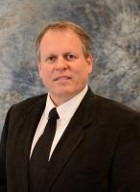Hon Hai Delivers First EV Bus To Kaohsiung City in Taiwan
TAIWAN REPORT
On March 3, Hon Hai Precision Industry delivered its first EV, the Model T commercial bus, to a bus route operator based in Kaohsiung City in southern Taiwan. The company aims to deliver 30 buses by the end of this year to expand its EV business, which is a new entry into the market, and the key to its future growth will be the extent to which it can break away from its business model that relies on contracted production of iPhones.
The “Model T” was delivered to Kaohsiung Bus Company. The vehicle was developed by Hung Hua Advanced Technology, a new company jointly established with Yulon Motor Manufacturing (Yulon), a major Taiwanese car manufacturer. Everything about the Model T, from concept to design and manufacturing, was done in Taiwan.
More than 65% of the parts procured were supplied by members of MIH, a group of more than 1,000 cooperating manufacturers recruited by Hon Hai when it entered the EV market, as well as by Taiwanese manufacturers. The vehicle will begin operating on actual bus routes on March 16, the company said.
Hon Hai also plans to introduce EVs for personal use in the future. In addition to the Model C SUV, which will be the first EV for individuals, the company plans to introduce the Model E, a high-end sedan. The company has already announced a plan to achieve sales of 1 trillion Taiwan dollars (over 4 trillion yen) in five years.
Source: The Nikkei
PSR Analysis: Hon Hai moves very fast. Less than two years after announcing its entry into the EV business, Hon Hai delivered one of the company’s first three EV prototypes in October 2021.
The alliance they founded, MIH, has been in existence for more than a year since October 2020, and more than 2,000 companies from Japan and other countries have joined the development coalition. An alliance of unprecedented scale is about to bring about a major innovation in the automotive industry.
MIH (Mobility in Harmony) is an open EV ecosystem that promotes new collaborations in the mobility industry. MIH brings together strategic partners in the EV field, where the development and manufacturing processes are different from those of conventional vehicles, and promotes the creation of next-generation EVs, autonomous driving, and mobility service applications by opening up advanced hardware and software technologies.
Through the realization of reference designs and standardization of EV technologies, many alliance members intend to jointly create an open EV platform that will bring innovation to the industry by shortening development cycles and lowering barriers to entry.
The number of overseas companies outside of China and Taiwan participating in the MIH continues to increase. In addition to South Korea’s Kia and India’s Mahindra, Tier 1 automakers Continental of Germany and ZF are also participating.
Major players include Microsoft, Arm, LG Electronics, ON Semiconductor, Oracle, Kaspersky Lab, Samsung Electronics, Siemens, TomTom, and Dell Technologies.
At the time of MIH’s inception, the impression was that Taiwanese and Chinese companies accounted for more than 95% of its members, but now, one after another, a diverse group of members have gathered from around the world, greatly enhancing its development capabilities.
The unprecedented scale of the MIH is symbolic of the global interest in next-generation mobility, such as EVs and autonomous driving.
It is easy to imagine that this power of MIH has been a major driving force in the development of the EV buses this time around. All eyes are now focused on the future actions of this huge alliance on an unprecedented scale. PSR



